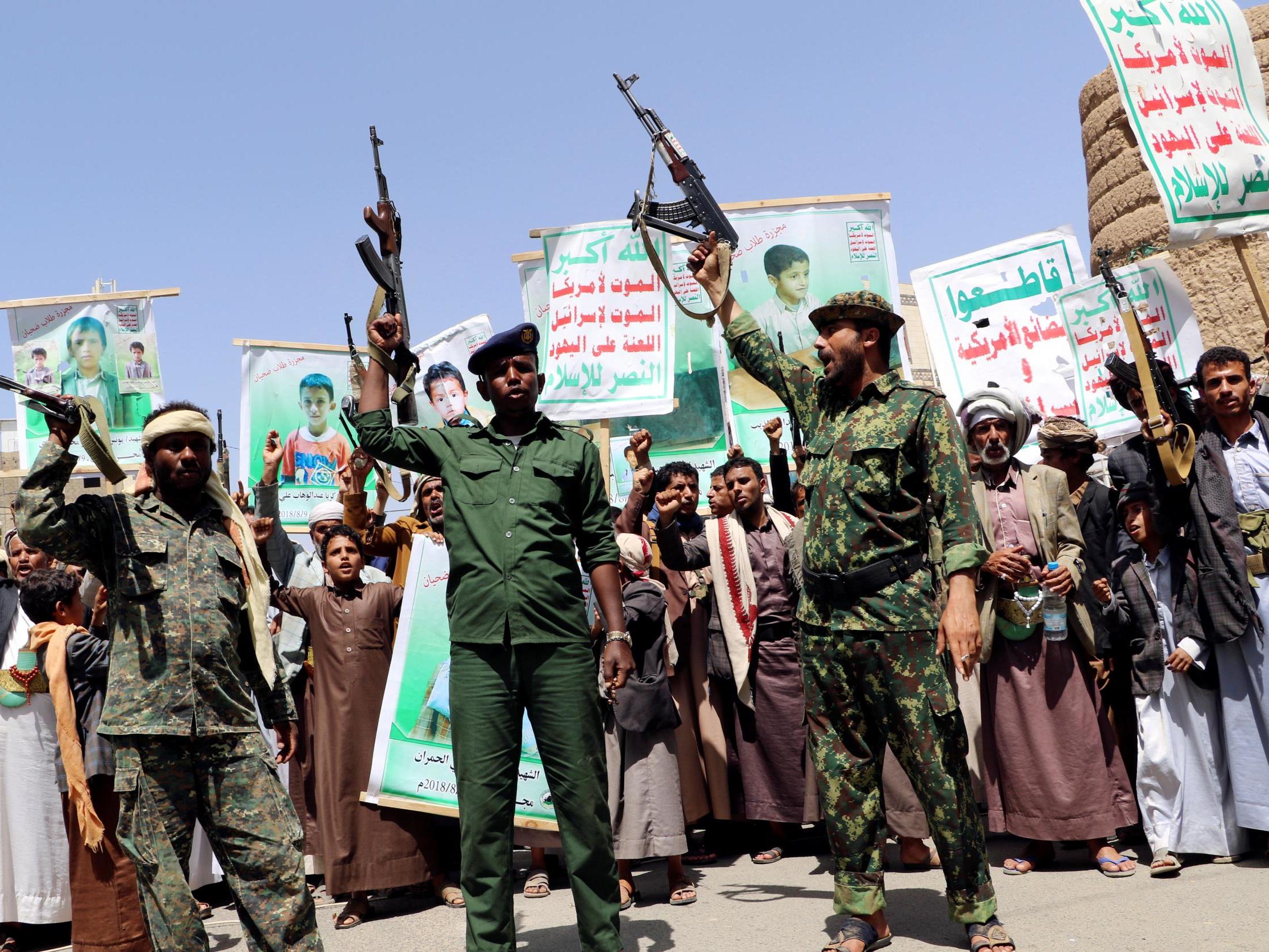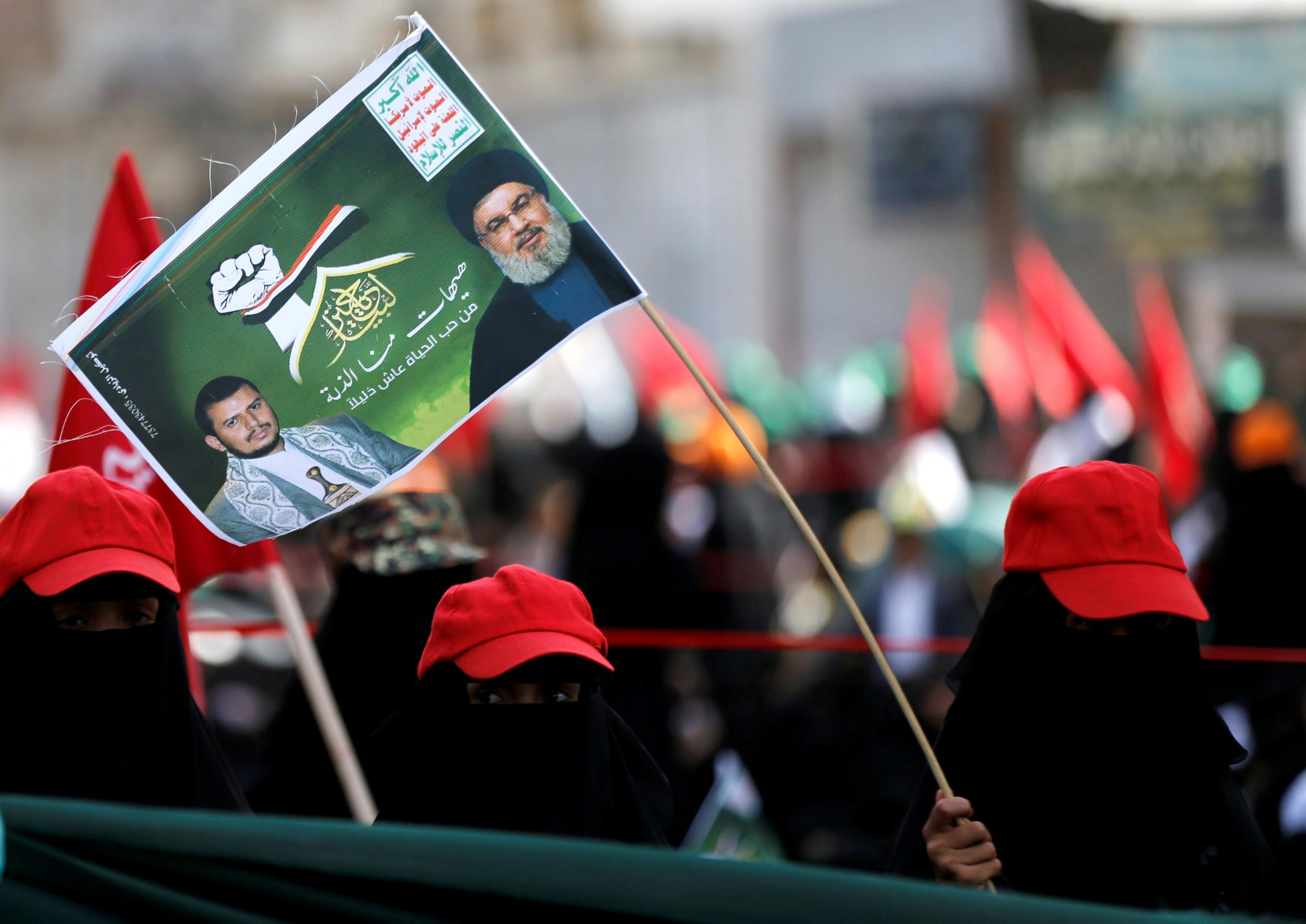Majority of Americans want congress to cut arms sales to Saudi Arabia over Yemen war, survey finds
Poll also reveals widespread ignorance about the conflict

Your support helps us to tell the story
From reproductive rights to climate change to Big Tech, The Independent is on the ground when the story is developing. Whether it's investigating the financials of Elon Musk's pro-Trump PAC or producing our latest documentary, 'The A Word', which shines a light on the American women fighting for reproductive rights, we know how important it is to parse out the facts from the messaging.
At such a critical moment in US history, we need reporters on the ground. Your donation allows us to keep sending journalists to speak to both sides of the story.
The Independent is trusted by Americans across the entire political spectrum. And unlike many other quality news outlets, we choose not to lock Americans out of our reporting and analysis with paywalls. We believe quality journalism should be available to everyone, paid for by those who can afford it.
Your support makes all the difference.A majority of Americans oppose the US government’s support for the ongoing Saudi-led war in Yemen, a survey has shown.
Some 58 per cent of respondents wanted lawmakers to curtail or halt the supply of arms for a conflict considered the world’s worst ongoing humanitarian disaster.
Only 13 per cent of Americans said they want lawmakers to maintain or increase arms sales to the US allies in the conflict – Saudi Arabia and the United Arab Emirates.
But the survey, conducted by YouGov and commissioned by the International Rescue Committee relief group, also showed striking nationwide ignorance about the conflict.
The three-year conflict in Yemen has been largely ignored by broadcast media in favour of near 24-hour coverage of President Donald Trump’s foibles.
The war has claimed tens of thousands of lives and brought the Arab world’s poorest nation to the brink of widespread famine as winter approaches and heating and cooking fuel prices spike, according to relief organisations. But of 1,000 Americans surveyed earlier this month, a third said they had never even heard of the Yemen war.
Among those who had an opinion on the conflict, 75 per cent opposed US involvement.
“We’ve already made the argument that this conflict is morally and strategically bankrupt," said Amanda Catanzano, a senior director at the International Rescue Committee. "But it’s also politically unpopular. It doesn’t reflect the perspective of the American people."

The conflict has recently become a focus of policymakers in the west. The murder of Jamal Khashoggi last month, at the hands Saudi agents tied to the office of Crown Prince Muhammad bin Salman, has sparked a debate about Riyadh’s increasingly erratic leadership.
Prince Salman, as defence minister, intervened in Yemen in 2015 after Houthi rebels seized the capital, Sanaa, and strengthened what had been a loose alliance with Iran.
Canada, Germany, Denmark, and Finland have already announced new restrictions on arms exports to Saudi Arabia and the UAE. The US, UK, and France have resisted such action.
On Monday, a coalition of charities including Oxfam and Save the Children issued a joint statement demanding an ceasefire, the reopening of ports to humanitarian and commercial goods, and for authorities to resume paying the salaries of civil servants.

The coalition said: “If the government of Yemen, Saudi Arabia, the UAE, Ansar Allah, and other parties to the conflict fail to take these steps, and if the United States does not use all levers of pressure to compel them to do so, responsibility for the deaths of many more Yemeni civilians will lie not only with the parties to the conflict, but with the United States as well.”
US secretary of defence James Mattis has called for a ceasefire in Yemen by the end of November ahead of peace talks in Sweden next month, and a number of US lawmakers have spoken out against American involvement in the conflict, but the war rages on. "Rather than halting the fighting we’ve seen continued intense clashes," said Ms Catanzano. “We are anticipating some debate on Capitol Hill in the coming days about future of US support for Saudi and UAE coalition. If the administration isn't ready to move on it, we hope Congress can give it the time and attention and debate it deserves.”
In general, the war at the southern edge of the Arabian peninsula has received scant coverage in the US press. Of those contacted in the latest survey, 58 per cent said they did not know the US sells arms and provides intelligence to the Saudi-led coalition and 64 per cent did not know about civilian casualties.

Nearly 30 per cent said they had no opinion on the conflict. Asked if US involvement in the Yemen war advanced American interests, 42 per cent said they did not know.
The survey found 82 per cent want congress to restrict weapons transfers and more than half want an end to all arms sales.
Join our commenting forum
Join thought-provoking conversations, follow other Independent readers and see their replies
Comments